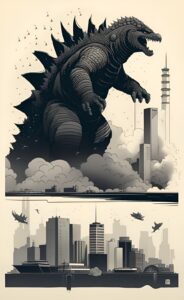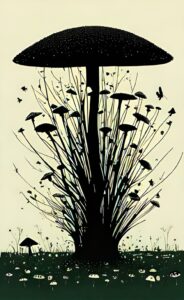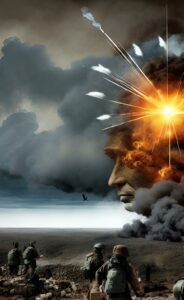Don’t Waste a Good Crisis: “If you want to know what might come next, read the memoir of ‘White’ Russian general Pyotr Wrangel, Always with Honor, about the Russian Civil War. I’m not joking.”
Godzilla: “A highlight of Heisei period Godzilla movies is Godzilla vs. King Ghidorah. It’s mostly a highlight for being completely bonkers Japanese nationalism. The hero is an alcoholic Japanese nationalist who witnessed Godzilla defending them from Americans in Kwajalein. Ever been to Tokyo? If you have, you’ve probably seen the crazy black vans driven around by Mishima-esque ultra nationalists, spouting off insane Japanese propaganda, demanding they go back to Emperor worship and the glories of Imperial Japan. I’m pretty sure these guys took over production of this film. Shitlib Americans from the future (really, I’m not exaggerating) steal a time machine, and wreak havoc on Japan, to prevent Japan’s inevitable rise to the biggest and most powerful nation on earth by the 22nd century (their overwhelming might being driven by economic growth: a plausible scenario in 1990). They bring along a token race-traitor in the guise of a curly haired Japanese woman, and the shitlibs make fun of her a lot for having sympathy for her countrymen whose annihilation she somehow supported for a while. This is normal shitlib behavior, for example if you watch shitlib interactions with Russians in current year.”

Halloween Parable: “Here’s a first principle worth considering: court death and it will oblige you. Granted, there is a certain libido for nonexistence in the human psyche because life is so hard sometimes that you yearn to be relieved of it. But not everyone in America seeks to walk that way. Probably fewer than half of us. So why do we allow that other half to drag us to the bone orchard? Do you see what it means to get your mind right when times get hard and the path is uncertain.”
Messianic Onlineism and the Spirit of ’16: “The spirit of ‘16 is fatherly love: laying down laws, protecting immature people from the consequences of their own desires, punishing wickedness in order that it may cease.”
Paleontology and Fungi: “Fungi have strange lifestyles; they live in radioactive environments, they cause bizarre parasitic diseases in amphibians, they do mind control on insects, a fungus is the biggest and oldest known organism, they have reproductive habits involving thousands of sexes (humans with nonstandard gender identification sometimes do look a bit fungi-like), they often contain the same neurotransmitters as are in human brains, they produce melanin like humans do, there are electrical signals to communicate along hyphae structures of fungal colonies like primitive brains, they even take over space stations. Fungi brew up our booze and cheeses for us, they gave us antibiotics, they make bugmen hallucinate and they rot the food in the refrigerator.”

Reading Well: “You should start many books and complete few. You should never feel beholden to completing them, there are simply too many worthwhile works to read. You should re-read the books you adore. With a second reading you will realize just how much you have forgotten, how much you have absorbed, and how much you simply missed the first time, just like you miss any detail of life without repetition. I think this more important than any other suggestion. When you have found a masterpiece, you should reread it just as you would revisit a beloved foreign land, or a faraway friend.”
St. Jeffrey Dahmer: “…most people don’t have Morality. They have a sense of Beauty and often get the two confused.”
The Red Hand Files: “Stop fucking around and get your shit together. Get clean and don’t die.”
War as the Truest Form of Divination: On Cormac McCarthy’s Blood Meridian: “What starts as an obscure tale of loathsome violence, so grotesque that it’s nearly boring, eventually finishes as a heady parasocial bond that one almost wishes was real life. In this subtle change of mindset, which sneaks up on the reader, I think one learns something about the evil present in oneself, but also something not altogether unwholesome about the abiding call to militant adventure—a need that is so completely atrophied in modernity that it would be invisible if it were not for the existence of a novel like this one.”

